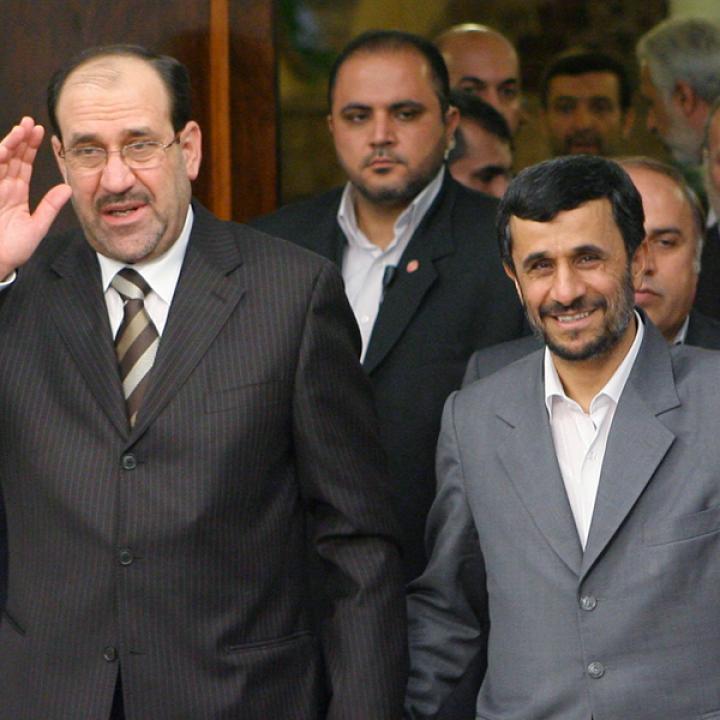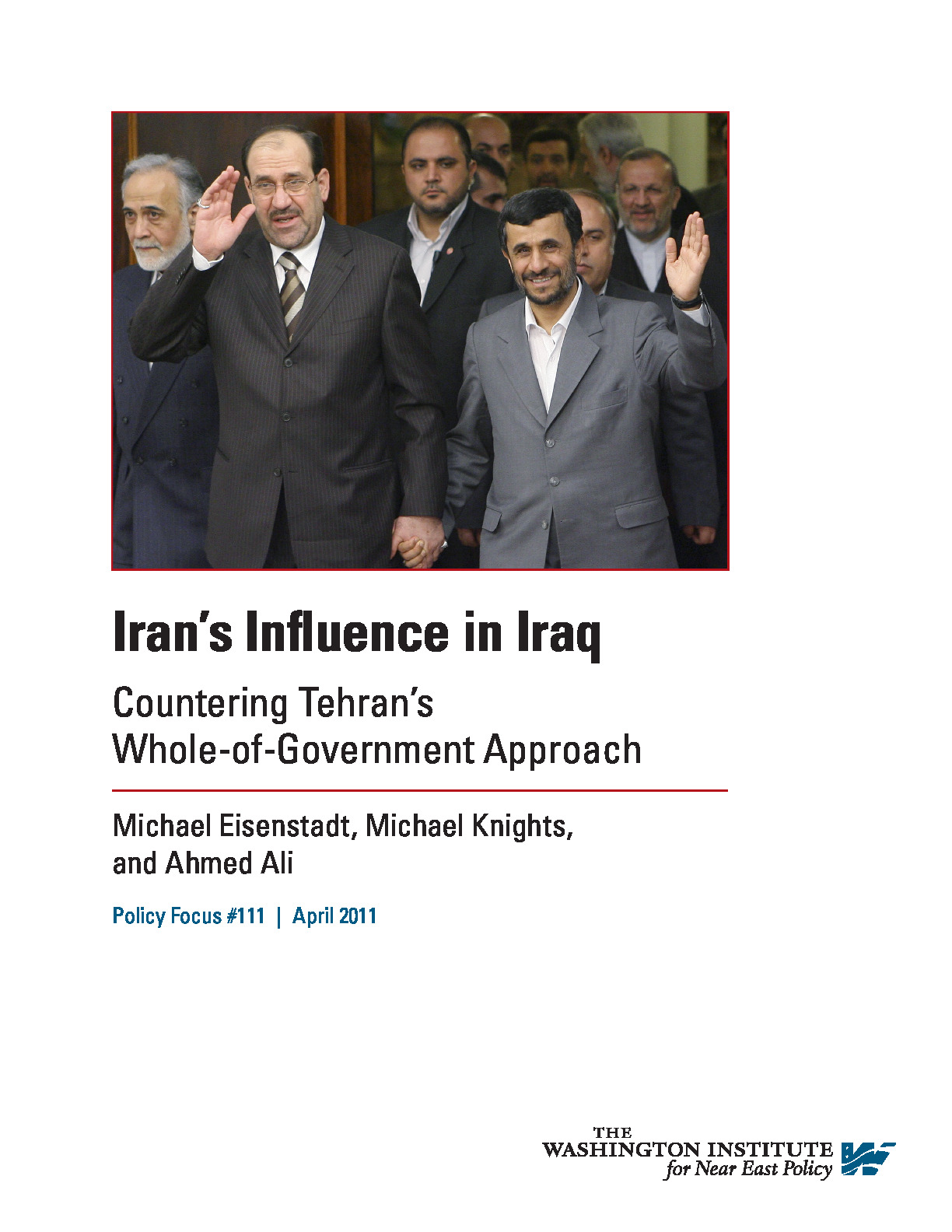
- Policy Analysis
- Policy Focus 111
Iran's Influence in Iraq: Countering Tehran's Whole-of-Government Approach

Since the overthrow of Saddam Hussein's regime in 2003, Iran has tried to establish itself as the key external power broker in Iraq by exploiting ties with key parties, arming and training militias, and exerting economic, religious, and informational influence. Although these efforts have yielded mixed results thus far, the impending U.S. military withdrawal, the formation of a new Iraqi government that incorporates many of Tehran's closest allies, and the unrest fomented by the Arab Spring present Tehran with opportunities to extend its reach even further.
In this Policy Focus, Iraq experts Michael Eisenstadt, Michael Knights, and Ahmed Ali assess the current extent of Iranian influence and the prospect of Tehran emerging as the eventual "winner" of the war in Iraq. Focusing on Iran's ties to Iraqi political parties and militias, along with soft-power factors such as trade and business relations, influence over Shiite clerical networks, and Arabic-language news programming, they lay out the practical details of Iran's activities on the ground, including an invaluable "who's who" of Tehran's most important Iraqi partners. If Washington hopes to counter these efforts, it must commit to a whole-of-government approach of its own, maintaining intensive engagement with Baghdad on the political, economic, and military fronts for years to come.
THE AUTHORS
Michael Eisenstadt is director of the Military and Security Studies Program at The Washington Institute. His recent publications include Iran's Islamic Revolution: Lessons for the Arab Spring of 2011? (INSS Strategic Forum, 2011), "Should I Stay or Should I Go? What the United States Can Leave Behind in Iraq" (Foreign Affairs, 2010), and The Missing Lever: Information Activities against Iran (Washington Institute, 2010).
Michael Knights is a Lafer fellow at The Washington Institute, specializing in the military and security affairs of Iraq, Iran, Libya, Yemen, and the Gulf Arab states. His recent Washington Institute publications include Kirkuk in Transition: Confidence Building in Northern Iraq (with Ahmed Ali, 2010). Dr. Knights earned his doctorate at the Department of War Studies, King's College London, with a dissertation on the U.S. no-fly zones and air operations against Iraq.
Ahmed Ali is a Marcia Robbins-Wilf research associate at the Institute, with a focus on the political dynamics of Iraq. In addition to Kirkuk in Transition, he is the coauthor, with David Pollock, of "Iran Gets Negative Reviews in Iraq, Even from Shiites" (PolicyWatch #1653). Mr. Ali is a frequent commentator on Iraqi affairs in U.S. and international media, and his work has been featured by various Iraqi, Arab, and Kurdish media outlets.
-
50 pages





